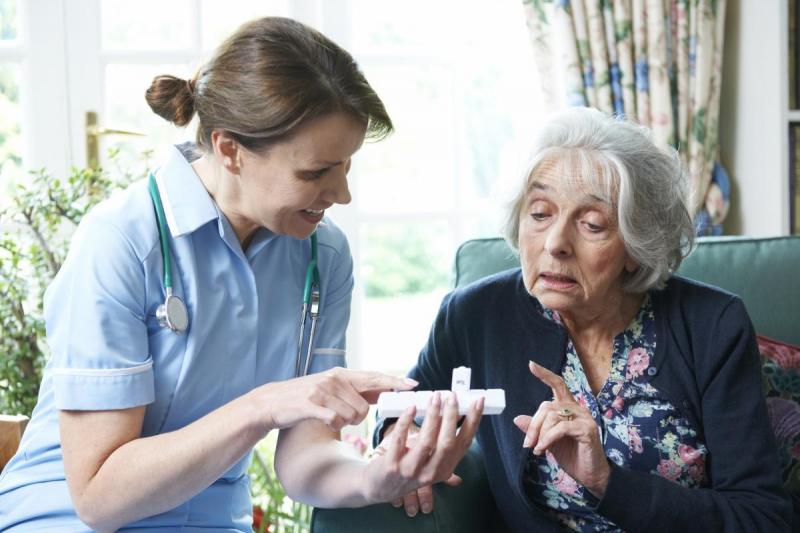A senior doesn’t have to give up their home to receive the care they need.
Home care services provide part and full-time care for individuals who can no longer manage all the tasks in their day-to-day life. Whether this is due to the death of a spouse, an injury, a medical condition, or memory impairment, there are home care services that can be tailored to the needs of the individual.
This post discusses what is included in-home care service, the different types of home care workers, and the benefits of home care service.
What Are Home Care Services?
Home care services send professionals to the home who help aging adults who can’t fully support themselves to continue living safely at home. These services can either be part-time or live-in, depending on the needs of the person.
Some of the reasons you may hire a home care worker for an individual include:
- Mobility issues
- Managing a chronic health condition
- Recovery from a medical procedure
- Special needs
- Disability
- Social isolation
- Dementia or Alzheimer’s
- Frailty
The Different Kinds Of Home Care Workers
The type of home care worker you hire will depend on the needs of the individual. Home care workers come with different skill sets and depending on the needs of the individual you might end up bringing in more than one type.
Home Support Worker (HSW)
An HSW helps individuals with their daily personal needs but is not trained to provide any physical assistance. They are beneficial for individuals who are not frail or at risk of injury from everyday activities but need help with important aspects of their day-to-day.
An HSW Can Help With:
- Basic housekeeping
- Meal preparation
- Laundry
- Medication reminders (but not administration)
- Companionship
- Transportation
Personal Support Worker (PSW)
A PSW provides the same services of an HSW but has additional training to work with those who are frail and require physical assistance for daily activities. They are trained to provide lifts and transfers of a person safely.
A PSW Can Help With:
- Bathing
- Getting dressed
- Using the bathroom
Licensed Vocational Nurse (LVN) or Practical Nurses (LPN)
LVNs and LPNs are nurses who work under the direction of a physician or registered nurse to provide at home medical care and checkups.
Duties of an LVN or LPN May Include:
- Helping patients with daily tasks such as bathing, eating or using the bathroom
- Performing medical checkups on each visit
- Administering injections
- Changing bandages or catheters
- Performing condition-related massage
Physical Therapist
A physical therapist may also be brought in to help individuals with mobility issues in their environment and provide rehab after an injury or surgery. They will work with the individual to ensure they can live safely in the home and use any recently installed home accessibility features.
Benefits of Having In-Home Help
Aside from the benefits listed above, bringing in in-home help can be beneficial in lots of other ways:
- Provides the family with peace of mind that their loved one’s needs are taken care of
- In-home caregivers provide regular social contact for seniors who might otherwise be isolated
- Allows the individual to continue to live in the home instead of moving to assisted living
- Part-time in-home care is cheaper than full time assisted living
Aging Comfortably: Staying Happy In Your Home
If a person has lived in a house for decades, it is a shame to have to leave it behind. With in-home care, a person can continue to live comfortably and independently in that home for many years to come.
Medicare Part A and/or Medicare Part B covers some aspects of home care help. At Call4SeniorsSavings we provide you with quotes from different Medicare plans so you can get the most affordable rates without having to shop around.
Visit our homepage to learn more about what we offer, or learn more by calling our toll-free number: 1-888-474-8350.

